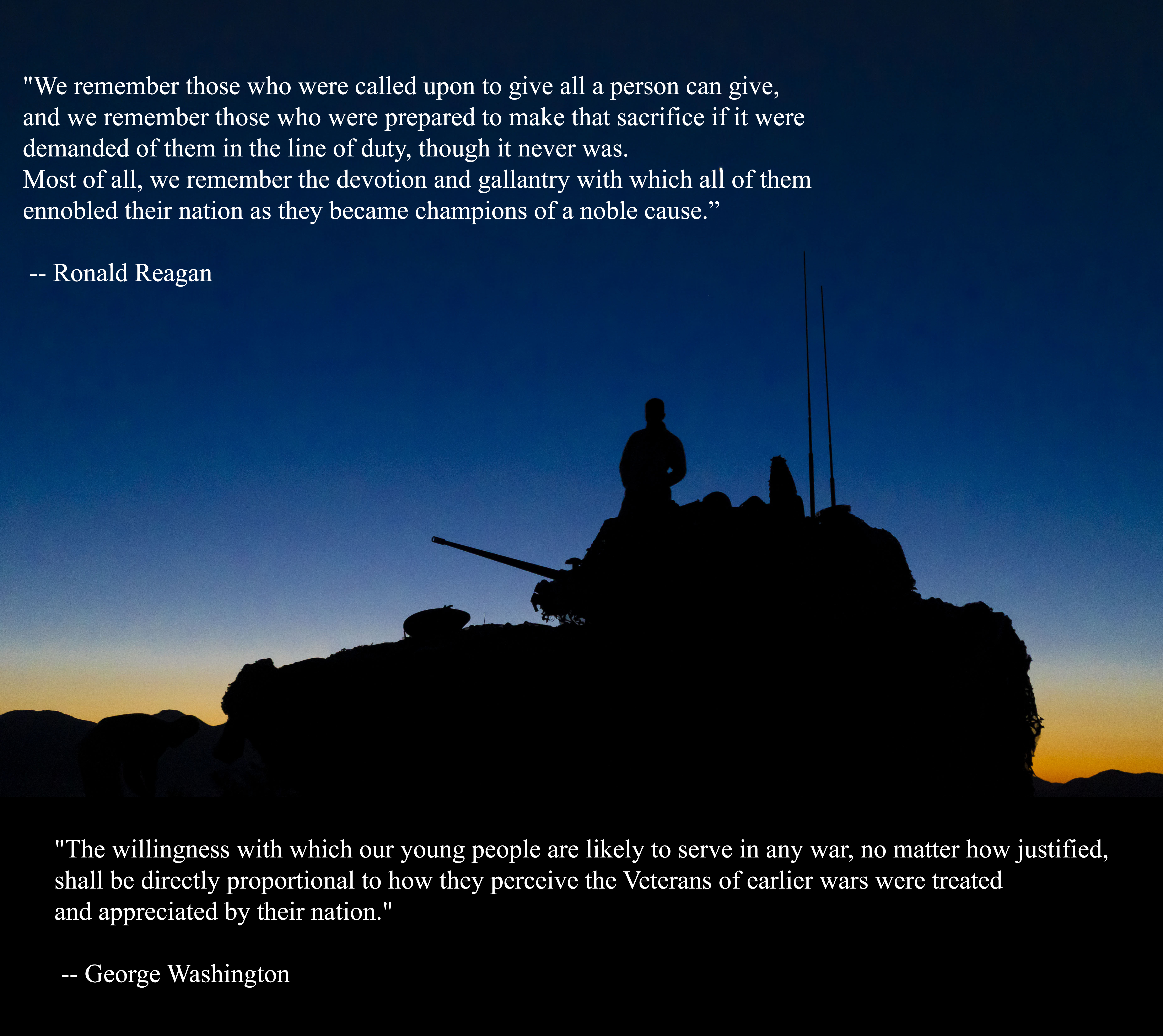Featured
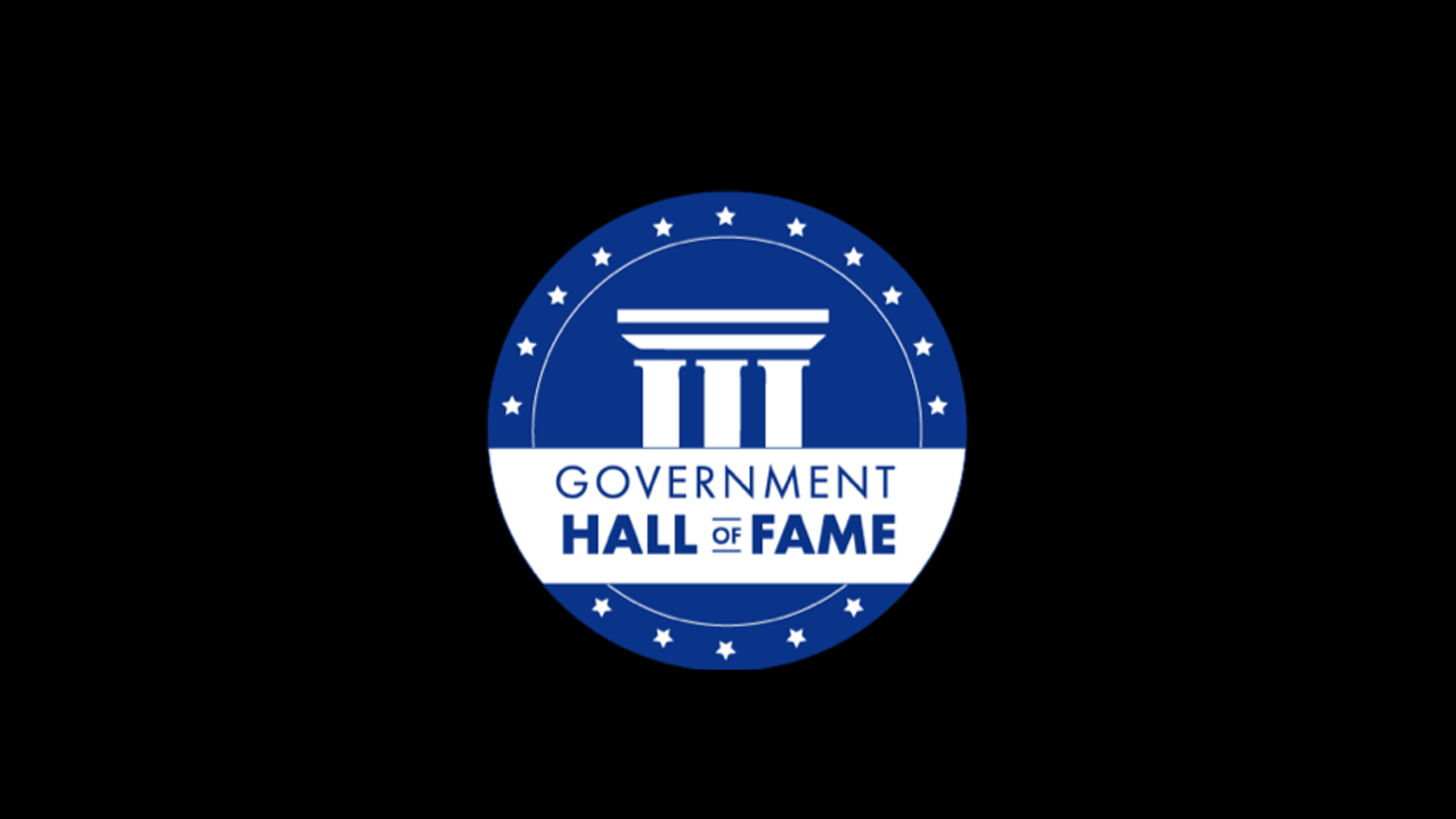
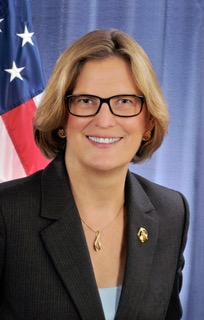 The Potomac Institute for Policy Studies is proud to announce the induction of Senior Fellow Dr. Kathryn Sullivan to the United States Government Hall of Fame. It is another in a long list of awards Dr. Sullivan has received for her life-long work and years of public service. Dr. Sullivan is in an elite group of honorees in 2020 which includes, among others, the late Congressman and Civil Rights Leader John Lewis, President George H.W. Bush, renowned abolitionist Frederick Douglass, Astronaut John Glenn, and Former Secretaries of State Madeleine Albright and Condoleezza Rice.
The Potomac Institute for Policy Studies is proud to announce the induction of Senior Fellow Dr. Kathryn Sullivan to the United States Government Hall of Fame. It is another in a long list of awards Dr. Sullivan has received for her life-long work and years of public service. Dr. Sullivan is in an elite group of honorees in 2020 which includes, among others, the late Congressman and Civil Rights Leader John Lewis, President George H.W. Bush, renowned abolitionist Frederick Douglass, Astronaut John Glenn, and Former Secretaries of State Madeleine Albright and Condoleezza Rice.
The Government Executive Media Group established the Hall of Fame in 2019 to “celebrate distinguished civil servants who have demonstrated sustained achievement and unparalleled dedication to public service throughout their careers. Inductees are chosen by a selection committee made up of luminaries in government management and public administration.” They say Dr. Sullivan was a perfect candidate for this honor.
“Kathryn Sullivan embodies exactly what the Government Hall of Fame was created to honor and highlight: selfless public service and a record of accomplishment that serves as a shining example for others to follow. She has literally gone from outer space to the depths of the ocean in her pioneering career,” said Tom Shoop, Executive Vice President and Editor in Chief of the Government Executive Media Group Inc.
“When I was informed by the Government Executive Media Group that I was selected, I went to their web site and saw that I was in completely jaw-dropping company, with both last year’s and this year’s cohort. I have a long record of public service and I am proud of the quality of the work I’ve done, but, it is a long leap from there to my thinking I’m in the same league as John Lewis and Frederick Douglass. I can kind of see how I’m a peer of John Glenn’s because I’ve worked with him some. As much as I adored and admired him as a heroic figure of my childhood astronaut, I had a portion of my life working with him and I could say we are cut from the same cloth,” Dr. Sullivan said. She went on to say, “Mine is not a typical story. I have to say all the early astronauts – the men and their missions – were deeply inspiring to me. But what that led me to was not ‘ I want to be an astronaut and go into space.’ It led instead to a broader motivation, a drive to have a life as inquisitive and adventurous as theirs were.”
Dr. Sullivan is the first woman ever to see the earth from both space and the bottom of the ocean. She was one of the first six woman to join the NASA astronaut corps in 1978 and was the first woman to ever walk in space. She flew on three shuttle missions during her time with NASA, including the mission that deployed the Hubble Space Telescope.
“We congratulate Dr. Sullivan on this prestigious honor. Hers is truly is an example of a life lived in public service. She is one of the most fascinating and accomplished women of our time. We are lucky to have her as part of Potomac Institute,” said Dr. Jennifer Buss, CEO of Potomac Institute for Policy Studies.

“Veterans Day is an opportunity to reflect on all those who have chosen to put themselves in harm’s way to protect our nation and our families. For many of us, putting on the uniform was the first time we chose others over our own selfish interests. It is also a time to remember the deep relationships you form with comrades in shared dangers, the times you “prove”—mainly to yourself—that you can do things you previously thought impossible, and, ironically, the safety of belonging to a “tribe” that you know would sacrifice themselves for you, which inspires you to do the same for them. In sum, it is a day to remember strong relationships, and arguably the most important lessons I have learned in my life.”
— Dwight Lyons
 Sean Filip: Why I decided to enlist
Sean Filip: Why I decided to enlist
I am from a small suburban town in northern Connecticut with a long history of military service in my family dating back to World War I. I was in 6th grade when September 11th happened and watched over the next 6 years as my brother, his friends, and then my friends all enlisted in the military to go overseas. My brother enlisted in the Marines in 2004 and was killed in 2005. When I told my parents I wanted to enlist they told me I should go to college. So, I decided the next best option was a military college, with a pathway to commission in the Marine Corps.
 I then left Norwich University the summer after my freshmen year to enlist in the Marine Corps Reserves after a classmate informed me his reserve unit was deploying to Afghanistan. My first deployment to Afghanistan came in 2011, and my last deployment to Afghanistan was in 2019. In March of 2020 I decided to leave the Marine Corps after 10 years of service.
I then left Norwich University the summer after my freshmen year to enlist in the Marine Corps Reserves after a classmate informed me his reserve unit was deploying to Afghanistan. My first deployment to Afghanistan came in 2011, and my last deployment to Afghanistan was in 2019. In March of 2020 I decided to leave the Marine Corps after 10 years of service.
Ultimately, I decided to join the Marines because I felt I needed to do my part to serve a greater good. I saw first-hand the positive transformation the Marines had on my older brother and I decided I too wanted to be a part of something that was bigger than myself. Which I know sounds cliché, but the work I did, the Marines I served alongside are proof to me that there are plenty of great men and women in the country with those same values and I am honored to have served alongside them. Semper Fi and happy veterans day to all those who have served at the Potomac Institute.
Veterans Day to me is an opportunity to pay our respects to all
of the magnificent men and women who all through the years
have served our great nation in peace and in war. It’s a great
time to remember and to be thankful, and of course, obviously,
we remember all those who gave the ultimate sacrifice.
—General Al Gray
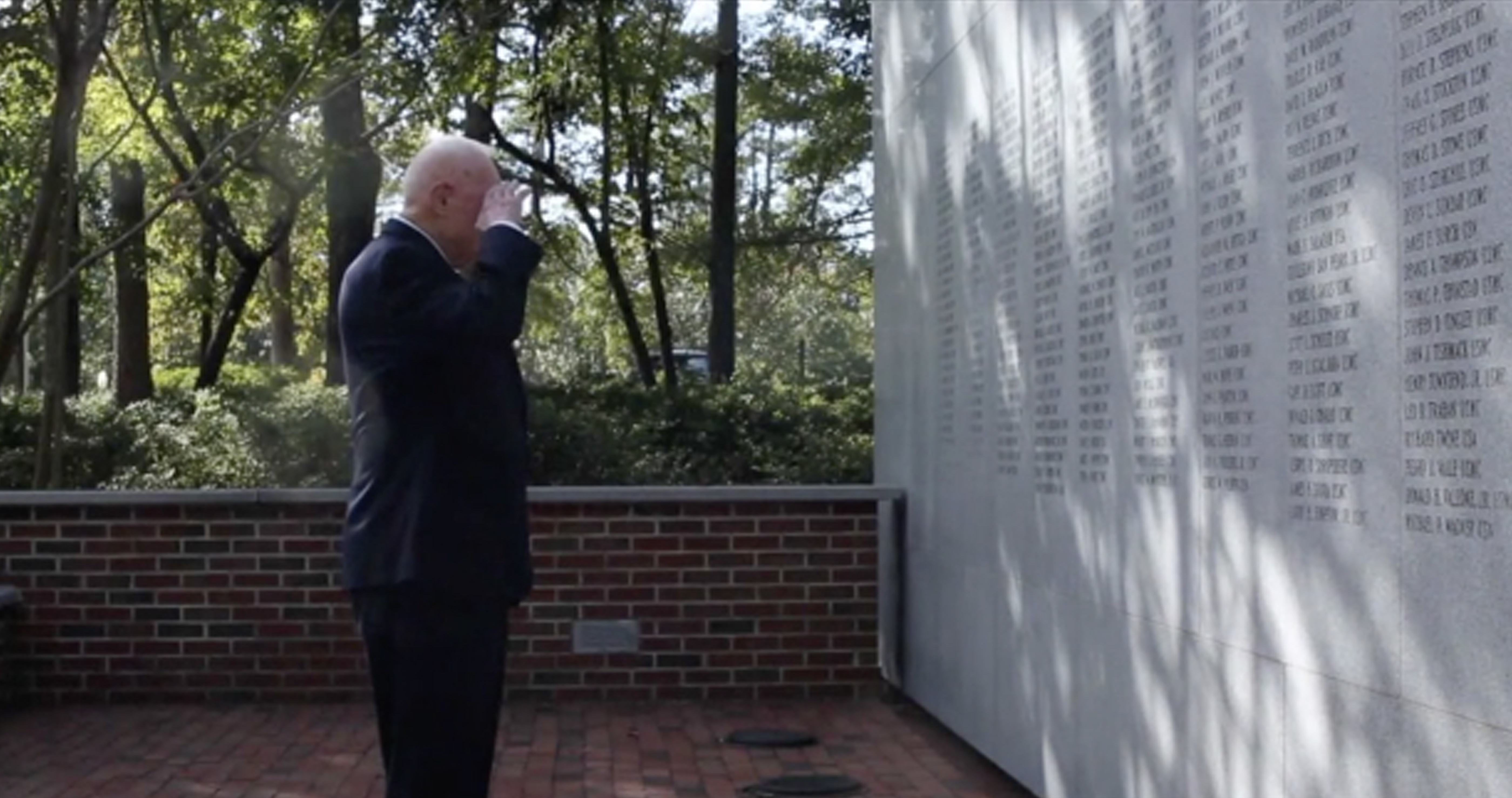 General Al Gray salutes those who lost their lives.
General Al Gray salutes those who lost their lives.

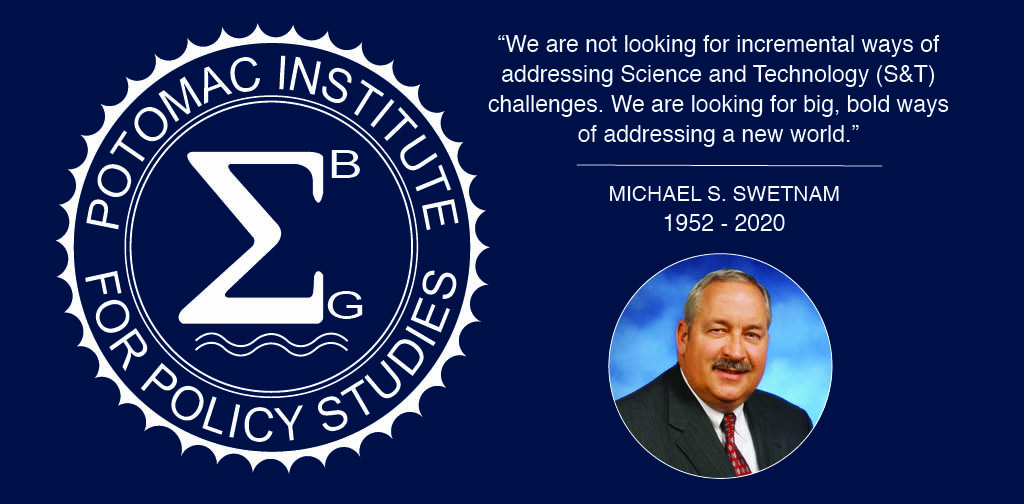
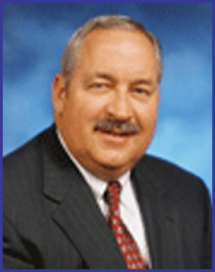 The Potomac Institute for Policy Studies (PIPS) is paying tribute to its late founder, Michael S. Swetnam, who passed away in September. Newly appointed Chairman General Al Gray and CEO Dr. Jen Buss announced the honors to the PIPS organization. The first is the dedication and naming of the Institute’s official Michael S. Swetnam Board Room to celebrate his accomplishments and leadership of the Institute. The second is the establishment of a Visiting Fellowship Fund that encourages, grows, and supports the bold and innovative thinking that Mr. Swetnam was famous for throughout his lifetime.
The Potomac Institute for Policy Studies (PIPS) is paying tribute to its late founder, Michael S. Swetnam, who passed away in September. Newly appointed Chairman General Al Gray and CEO Dr. Jen Buss announced the honors to the PIPS organization. The first is the dedication and naming of the Institute’s official Michael S. Swetnam Board Room to celebrate his accomplishments and leadership of the Institute. The second is the establishment of a Visiting Fellowship Fund that encourages, grows, and supports the bold and innovative thinking that Mr. Swetnam was famous for throughout his lifetime.
Mr. Swetnam co-founded the Institute in 1994. Under his direction and leadership, PIPS has grown exponentially over the past 25 years, working with multiple government agencies and providing the key research needed to create policy decisions in the fields of science and technology.
Before PIPS, Mr. Swetnam had a storied career in the U.S. Navy. He then worked for the Director of Central Intelligence as a Program Monitor on the Intelligence Committee Staff. From 1990-1992, Mr. Swetnam served as a Special Consultant to President George H. W. Bush’s Foreign Intelligence Advisory Board, providing expert advice on Intelligence Community issues and assisted in authoring the Board’s assessment of Intelligence Community support to Desert Storm and Desert Shield. Mr. Swetnam also worked in the private sector as a Vice President of Engineering at the Pacific-Sierra Research Corporation, Director of Information Processing Systems at GTE, and Manager of Strategic Planning for GTE Government Systems. He authored or co-authored multiple books and articles on national security and counterterrorism.
“This dedication and scholarship are the least we can do to remember Mike. He poured his heart and soul into PIPS from the very beginning. It just makes sense to recognize him for the work he did to make us what we are today,” said Dr. Buss. The Institute will release details about how to apply and qualify for the Fellowship Fund at a later date.
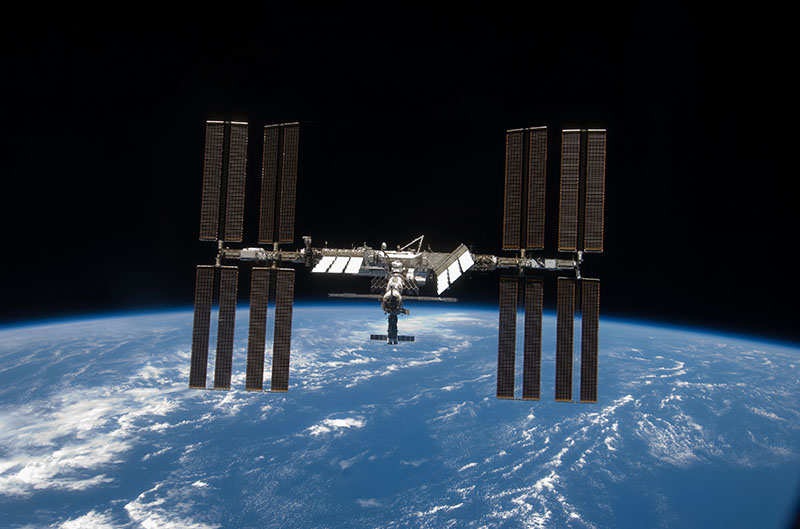
 Space may still be the final frontier, but the dynamic of the joint partnership between the U.S. and Russia is changing. When the Soyuz spacecraft launched earlier this month, headed for the International Space Station (ISS), NASA said it would be the last time the U.S. would pay for a seat on the craft. This doesn’t mean America’s partnership with Russia will end. Quite the opposite—at least, that is the hope.
Space may still be the final frontier, but the dynamic of the joint partnership between the U.S. and Russia is changing. When the Soyuz spacecraft launched earlier this month, headed for the International Space Station (ISS), NASA said it would be the last time the U.S. would pay for a seat on the craft. This doesn’t mean America’s partnership with Russia will end. Quite the opposite—at least, that is the hope.
Major General Charles Bolden, the former Administrator for NASA and a member of the Board of Regents at the Potomac Institute for Policy Studies says that while this may be the end of an era, it is most likely not the last time an American astronaut will board the Soyuz spacecraft.
Crews travel to and from the ISS in teams, and although crews are cross trained in each other’s space suits, the ISS Russian and US onboard systems are very different in operation and design. US crews are trained on US systems and Russian crews are trained on Russian systems. “We ideally want to have at least one American and one Russian crew member onboard the ISS who are cross-trained in Soyuz and U.S. commercial vehicles as a contingency for the need to make an emergency return to Earth (if one vehicle and team needs to return home because of medical or other emergency, for example),” Bolden said.
The goal is to ensure that both countries are comfortable, prepared, and trained to travel on commercial and government spacecraft in use to date. NASA wants what they call “mixed crews.” That’s when a Russian cosmonaut would fly to the ISS on a commercial flight with at least one American astronaut, and similarly, an astronaut would launch on Soyuz with at least one Russian counterpart.
Bolden says what will happen is the respective crew members will undergo training in the host nation at no cost. This puts Russia fully into the “barter agreement” under which all other space partners have operated from the beginning of the ISS Program. In this agreement, there is no exchange of currency, but rather the exchange of services or equipment for the ISS. “This is a further step in strengthening the partnership between NASA and Roscosmos wherein we become even more reliant on each other for long-term crew transportation to low-Earth orbit. As we develop Russian confidence in our U.S. vehicles, I actually think we will find a preference among many of the cosmonauts to fly in our larger, more roomy vehicles in which they can actually do minimal tasks during periods of crew vehicle occupancy on longer transits or extended on-orbit undocked periods,” Bolden said.
The “mixed crews” concept ensures continuity of the mission and is paramount to the success of advancements in space, so getting buy-in from the Russians to fly on board U.S. commercial spacecraft is key. Russia says it is not yet committed to the “mixed crews” concept. Russian officials tell the U.S. they want to see more successful commercial launches and missions before they will sign on to a “mixed crews” agreement. They will have that opportunity. SpaceX plans to launch astronauts from the U.S., Japan, and Europe to the ISS next month and early in 2021.

 The Potomac Institute for Policy Studies recognizes October as Cyber Security Awareness Month. When it comes to Cyber Security, how safe are we? Our experts say, not very. And the problem is expanding as those who try to hack into our lives find new ways to do so. But there are things to be done to help battle against cyber-attacks. At the Potomac Institute, we have warned for years that mitigating cyber-security issues goes well beyond simply downloading patches to fix software. Now, hardware security is also critical to cyber defense.
The Potomac Institute for Policy Studies recognizes October as Cyber Security Awareness Month. When it comes to Cyber Security, how safe are we? Our experts say, not very. And the problem is expanding as those who try to hack into our lives find new ways to do so. But there are things to be done to help battle against cyber-attacks. At the Potomac Institute, we have warned for years that mitigating cyber-security issues goes well beyond simply downloading patches to fix software. Now, hardware security is also critical to cyber defense.
Dr. Mike Fritze, Vice President and Senior Fellow at the Institute says that protecting hardware can prove difficult because of a lack of confidence in the supply chain. “Right now, we can’t guarantee a safe supply chain for hardware. The system is rife with problems. We need to be mindful of those who want to cause us harm and make sure we put our cyber security top of mind,” he said. Dr. Fritze also says the COVID-19 crisis has given us a wake-up call. “The virus has given us an opportunity to see the damaging impact of brittle and unsecure supply chains. This problem is too big for industry alone to handle. We need to create a comprehensive hardware cyber initiative where both industry and government work together,” he said.
Melissa Hathaway, former Cyber Security advisor to both Presidents George W. Bush and Barack Obama, and a Senior Fellow at the Institute takes that notion one step further. She says it’s not just the supply chain that needs closer examination, but the entire ecosystem. Whether we are talking about a router delivered to your home, or an entire weapons system, she says we are vulnerable because our government and corporate leaders have other priorities. She cites the growing number of ransomware attacks and telecommunications outages—specifically, those that knock our businesses and government offline. Ransomware attacks have increased by 700% during COVID-19, targeting healthcare facilities and hospitals as well as key IT business system providers. “We must pay attention to what is happening across our country. The patching cadence of our software and hardware is at a volume that is unsustainable. The decision to embrace and embed often poorly-coded or -engineered, commercial-off-the-shelf technologies into every part of our connected society—from government systems to critical infrastructures and services to businesses and households—is not without consequences. The providers of these technologies—the ICT vendors—are incentivized to be first to market with their products, and the marketplace has simply accepted the vendors’ promise that they will fix or ‘patch’ the flaws in their products later. And these systems are being exploited—we are losing personal information, protected health data, intellectual property—and our services are being knocked off-line at the very time when we as a society are dependent to be on-line and our services available and reliable,” Hathaway said.
What advice should we give to the next Congress and to the Administration? Both Fritze and Hathaway say that until the U.S. government prioritizes cyber security, we will continue to remain vulnerable to attack. Hathaway emphasizes the need for a stable infrastructure. She said, “We need a reliable and affordable Internet and perhaps we should accelerate Amazon, SpaceX, and OneWeb’s ability to meet the demands and service our rural areas.” She also said the country could use a Cyber Health Task Force, potentially using the National Guard to help when a large entity is knocked offline, as happened to Universal Health Services—one of country's largest hospital chains—earlier this month.
Dr. Fritze agrees the government must spend the time and money to ensure these systems are safe and reliable. “The multi-billion dollar price tag currently being considered in the CHIPS and Foundries Acts is money well-spent if it is dedicated to taking action to ensure secure, safe chips and a secure supply chain. It is no longer up for debate. It needs to happen right away,” he said.
At the Potomac Institute, we recognize the expanding threats to an ever-changing cyber world. Cyber threats are yet another form of virus threat. Through independent and objective analysis of the best available data and evidence, we recommend sound policy options to our governmental leaders to combat this ever-growing threat.
About the Potomac Institute
The Potomac Institute for Policy Studies is an independent, non-partisan, 501(c)(3), not-for-profit science and technology policy research institute. The Institute identifies and leads discussion on key science and technology issues facing our society. From these discussions and forums, we develop meaningful policy recommendations and ensure their implementation at the intersection of business and government.

